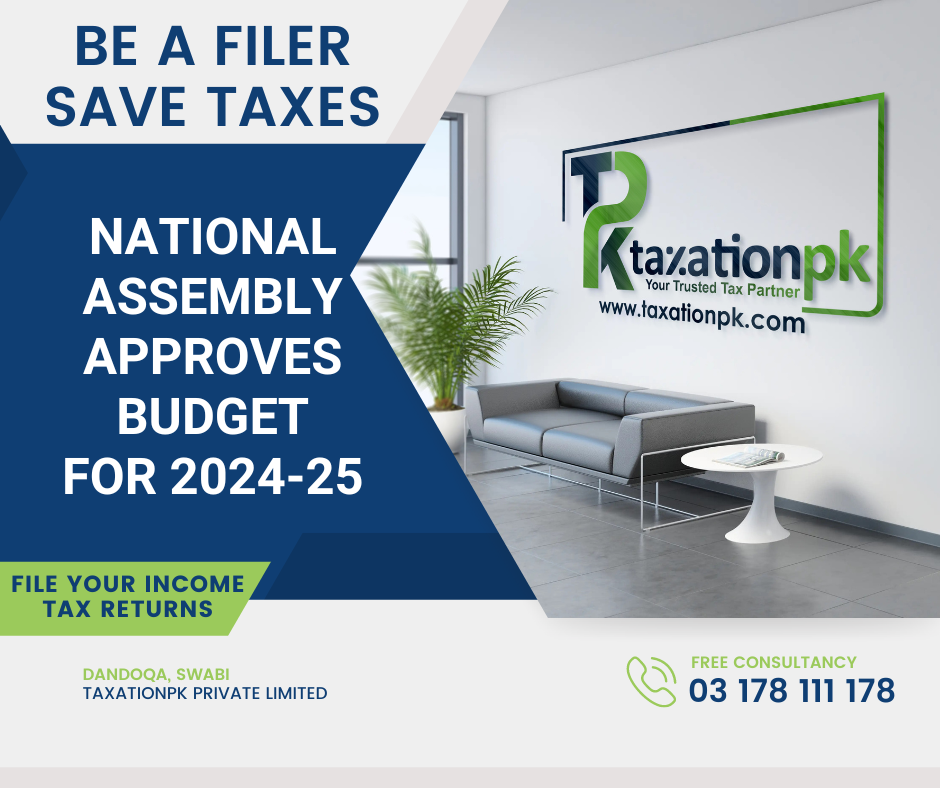Pakistan’s National Assembly passed the budget for the 2024-25 fiscal year on June 28th, 2024. This development comes as the country seeks a new bailout agreement with the International Monetary Fund (IMF) to address its growing debt and sluggish economic growth.
Budget Approval Despite Criticism
The budget, presented by the ruling Pakistan Muslim League-Nawaz (PML-N) government, faced criticism from opposition parties and businesses. They argued that the budget relied heavily on tax increases, leading to limited fiscal space for economic expansion and potentially higher inflation.
Despite these concerns, the ruling alliance, led by Prime Minister Shehbaz Sharif, managed to secure approval for the budget. The Pakistan Peoples Party (PPP), a key coalition partner, initially expressed reservations but eventually pledged support earlier this week.
Focus on Fiscal Consolidation and Tax Reforms
Finance Minister Muhammad Aurangzeb, in his address to the National Assembly, highlighted positive indicators like a reduced current account deficit, controlled fiscal deficit, and a stabilized currency. He emphasized the need for further progress, specifically targeting the low tax-to-GDP ratio currently at 9.5%.
Aurangzeb expressed a desire to eliminate the category of non-filers (taxpayers who haven’t filed tax returns) entirely and acknowledged the need for stricter tax measures. The budget outlines a plan to increase the tax-to-GDP ratio to 13% within three years.
Ambitious Tax Revenue Targets
The budget proposes an ambitious tax revenue target of Rs. 13 trillion ($46.66 billion) for the upcoming year, representing a significant 40% increase compared to the current fiscal year. This ambitious target is crucial for securing a potential IMF loan program of $6 billion to $8 billion.
To achieve this target, the budget proposes a 48% increase in direct taxes and a 35% rise in indirect taxes compared to revised estimates for the current year. Non-tax revenue, including petroleum levies, is also projected to increase by 64%.
Specific tax measures include raising taxes on textile and leather products, mobile phones, and capital gains from real estate to 18%. Additionally, working individuals will face higher direct taxes on their income.
Opposition Concerns and Inflationary Risks
Opposition parties, particularly those aligned with former Prime Minister Imran Khan, strongly criticized the budget, calling it inflationary. They believe the increased tax burden will negatively impact businesses and consumers.
The central bank also expressed concerns about potential inflationary effects due to limited progress in structural reforms for broadening the tax base. The reliance on higher taxes as the primary revenue-generating mechanism may lead to price hikes across various sectors.
Growth Target and Economic Stability
The budget sets a growth target of 3.6% for the upcoming year, with an inflation projection of 12%. As Pakistan navigates these fiscal adjustments, the government’s approach will be crucial in managing economic stability and securing international financial support.
The success of the IMF negotiations and the government’s ability to manage inflation while achieving economic growth will be key factors to watch in the coming months.
Looking Forward: Challenges and Opportunities
Pakistan’s recently approved budget reflects its commitment to fiscal consolidation and tax reform. However, several challenges remain, including the need for broader tax base reforms, managing inflation, and achieving sustainable economic growth.
Successful negotiations with the IMF, combined with effective implementation of the budget’s measures, could unlock much-needed investment and provide a path towards long-term economic stability. Continuous monitoring of inflation and adjustments to policy when necessary will be essential in mitigating the impact on Pakistani citizens.





